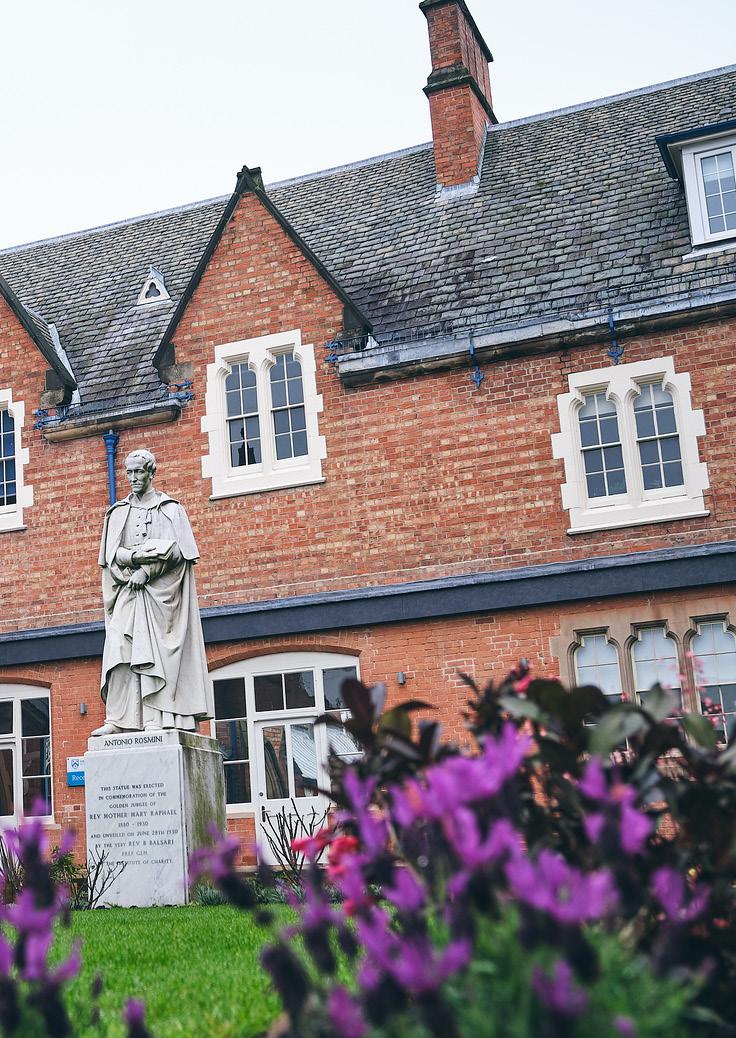




Since 2023, James Neville, previously senior vice principal at English Martyrs’ Catholic School, Leicester since 2020. Following a degree in modern history from Magdalen College, Oxford and an MPhil from King’s College, Cambridge, he returned to his alma mater, St John’s College, Cardiff to pursue a career in teaching. Rose to head of humanities and assistant head academic, moving to Ratcliffe College as assistant head in 2017.
‘I always knew I wanted to be a headmaster,’ so accepted Amherst headship at ‘the perfect time and location’ (not far from extended family, who are a ‘great support’ to him, his wife and two young children). Immediately got to work undertaking a full curriculum review throughout prep and senior, with the aim of raising academic standards. Also hopes to boost intake, improve marketing and increase pupil confidence and articulation through public speaking and debating – all whilst retaining the nurturing ethos for which the school is renowned. A lifelong committed Catholic, he frequently visits local maintained and independent schools giving talks on education, apologetically admitting recruitment is a welcome by-product.
Ambitious and driven, he is also relaxed, open and affable as we sit chatting in his simple yet architecturally characterful office, our eye drawn beyond mullioned windows to a newly installed croquet lawn for pupils. Parents are impressed, telling us ‘he quickly shared his vision’ and ‘goes out of his way to engage’. Pupils concur. ‘He always comes to say hello when I get dropped off early,’ said one, another agreeing ‘he’s really friendly’.
As academical clerk at Magdalen and King’s College Choral Scholar in Cambridge’s world famous choir, he has performed for the Dalai Lama, Queen Elizabeth II and King Charles III. Continues his passion for music by conducting a small ensemble of professional musicians.
Head of prep since 2018 is Elizabeth Clarke. Educated locally before undertaking history degree from Hull University and PGCE at Oxford Brookes. In 2005, joined Sacred Heart, Loughborough, completing NQT and obtaining SENCo qualifications, rising through ranks to deputy head. Door wide open, she welcomes us to her cosy office - countless thank you cards teetering on bulging shelves, overlooking the bright, busy ‘open area’ scattered with cushions and books, walls heaving with pupil projects and a cage with chicks just beginning to hatch.
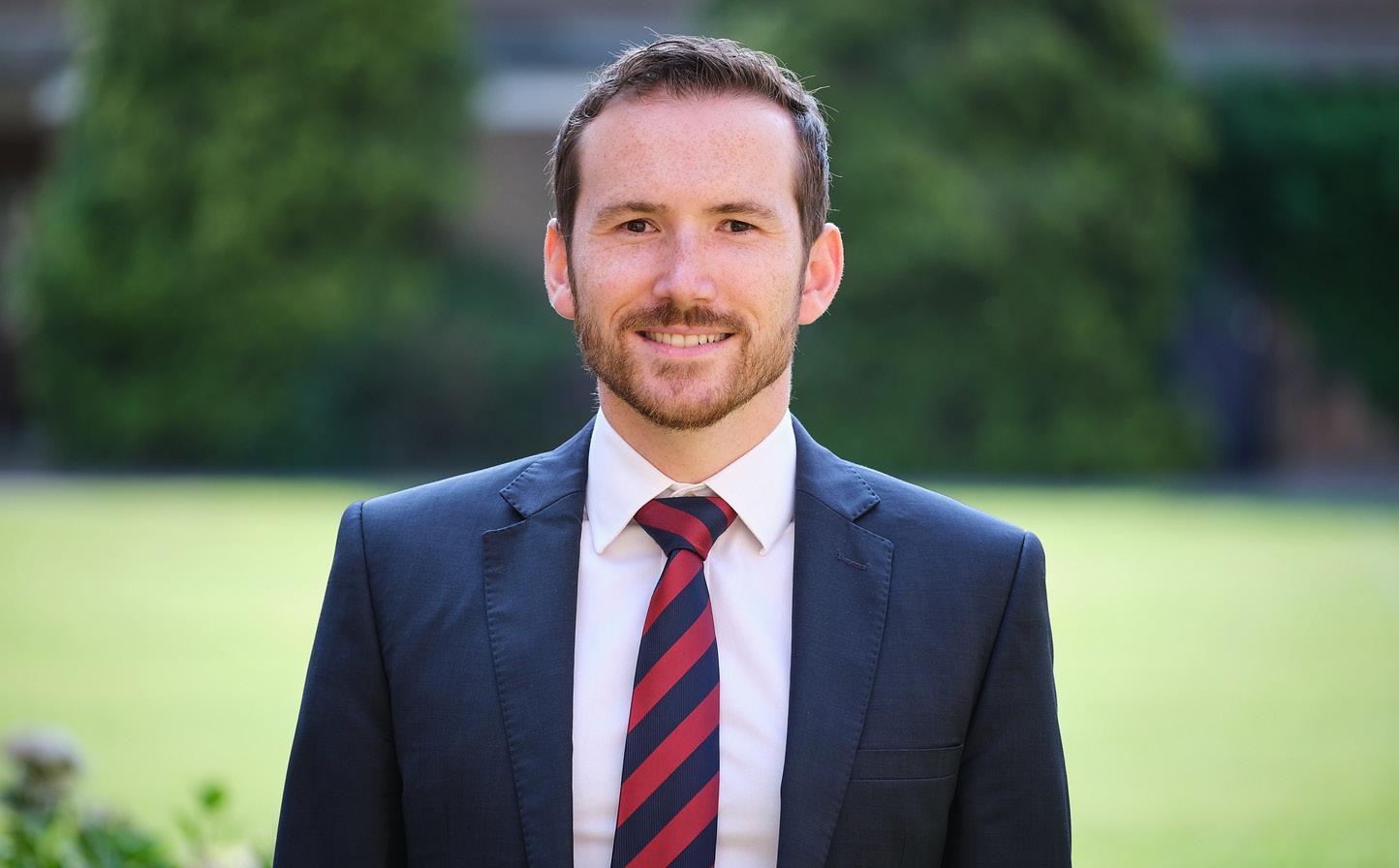
James Neville - Headmaster
Non-selective academically, though must be able to access curriculum. Reception entry via observations in current nursery/pre-school. Taster days are held for all other prep and senior entry year groups, as well as age appropriate CEM testing, plus previous school report (year 12 applicants also attend interview). Highest intake into years 5 and 7, mainly from state primaries. At least five grade 5 GCSEs including English and maths required for sixth form entry, although there is some discretion. Currently under capacity. Praise heaped on school entry process by parents: ‘They go out of their way to be helpful and reassuring – nothing is too much trouble.’


Praise heaped on school entry process by parents: ‘They go out of their way to be helpful and reassuring – nothing is too much trouble.’
Automatic entry from prep to senior for those who have attended since the first day of year 6 or earlier, although a few head off to Foundation High School or Loughborough Grammar. Increasingly, majority stay for sixth form, others to independent, state, college, apprenticeships or sports programmes. Most sixth formers to university, 20 per cent to Russell Group. UCL, Imperial, Durham, Warwick all popular, though Nottingham Trent offers the most places. In 2023, one to Oxbridge. Sometimes a few medics, but most popular courses are business management, law, psychology and modern languages. Some go on to study on prestigious art courses – recently to Courtauld Institute of Art. Recent apprenticeships include Global Banking Degree Apprenticeship and National Grid. Two overseas in 2023 – both with tennis scholarships to Wake Forest University and Georgia Tech.

‘…that is the difference at this school, it’s what’s best for the child…’
In 2023, 28 per cent 9-7 at GCSE; 13 per cent A*/A at A level (44 per cent A*B). In 2019 (the last pre-pandemic results), 23 per cent 9-7 at GCSE; 24 per cent A*/A at A level (57 per cent A*-B).
Prep and senior parents rave about ‘creative approaches’ and ‘lots of visual learning’ which ‘transforms teaching and enjoyment’ – water bombs in a maths playground session, board markers for deciphering tricky problems directly onto special tables etc. The prep’s ‘Woodland’ cross-curriculum project on display on our visit, with each class producing imaginative and unique interpretations.
Generally, between 11-13 pupils per class, some even smaller (usually only one class per year group in prep)– but parents love the individual attention that affords. ‘You sit down at parents evening confident the teacher truly knows your child.’ Spanish taught from reception and French from year 5. No Latin, after parent consultation. Year 6 pupil transition and independence promoted with art and science taught in senior school facilities. Parents like the fact that form tutor remains the same from years 7 to 9.
‘There’s none’, said parents when we asked about academic pressure, ‘it’s about doing your best and stretching your individual capabilities.’ All subjects delivered by specialist teachers from year 7. Maths is set from year 7, English and science from year 9. ‘My daughter has never felt embarrassed being in the bottom set, that’s where she belongs and is fine with it.’ Another confirms, ‘There’s no push to do a higher paper for results on a publicity poster – that is the difference at this school, it’s about what’s best for the child whether that’s aiming for 9’s, 6’s or 4’s.’
Invitational HAPPs (High Academic Potential Pupils) enable the most able to undertake individual projects, presented to parents during ‘celebration evening’. High achievers also given extension work across all subjects. ‘Owl’ award to broaden reading.
The five science labs may not be dazzling, but they are certainly spacious and serviceable. We popped in during lunch to find animated pupils on CREST Awards scheme creating fragrant bath bombs and investigating the ‘crispiest’ crisp (‘Spoiler alert – it’s the Kettle Chip,’ piped up enthusiastic scientist). IT suite boasts more terminals than pupils.
Majority take 10 GCSEs. Choices include business, food and nutrition, PE. Languages not compulsory, option for double science award. It’s ‘really flexible’, say pupils, ‘you can focus on what you are good at.’ RE boasts top results, followed by English, languages, maths, art, music.
Healthy 28 A level subjects (thanks to Foundation provision) including classical Greek, theatre studies, music tech, sociology and PE. Again, RE wins top spot for both selection and grades (classics, drama, maths, English close behind in achievement). Currently small numbers for science, although that ‘changes year on year’.
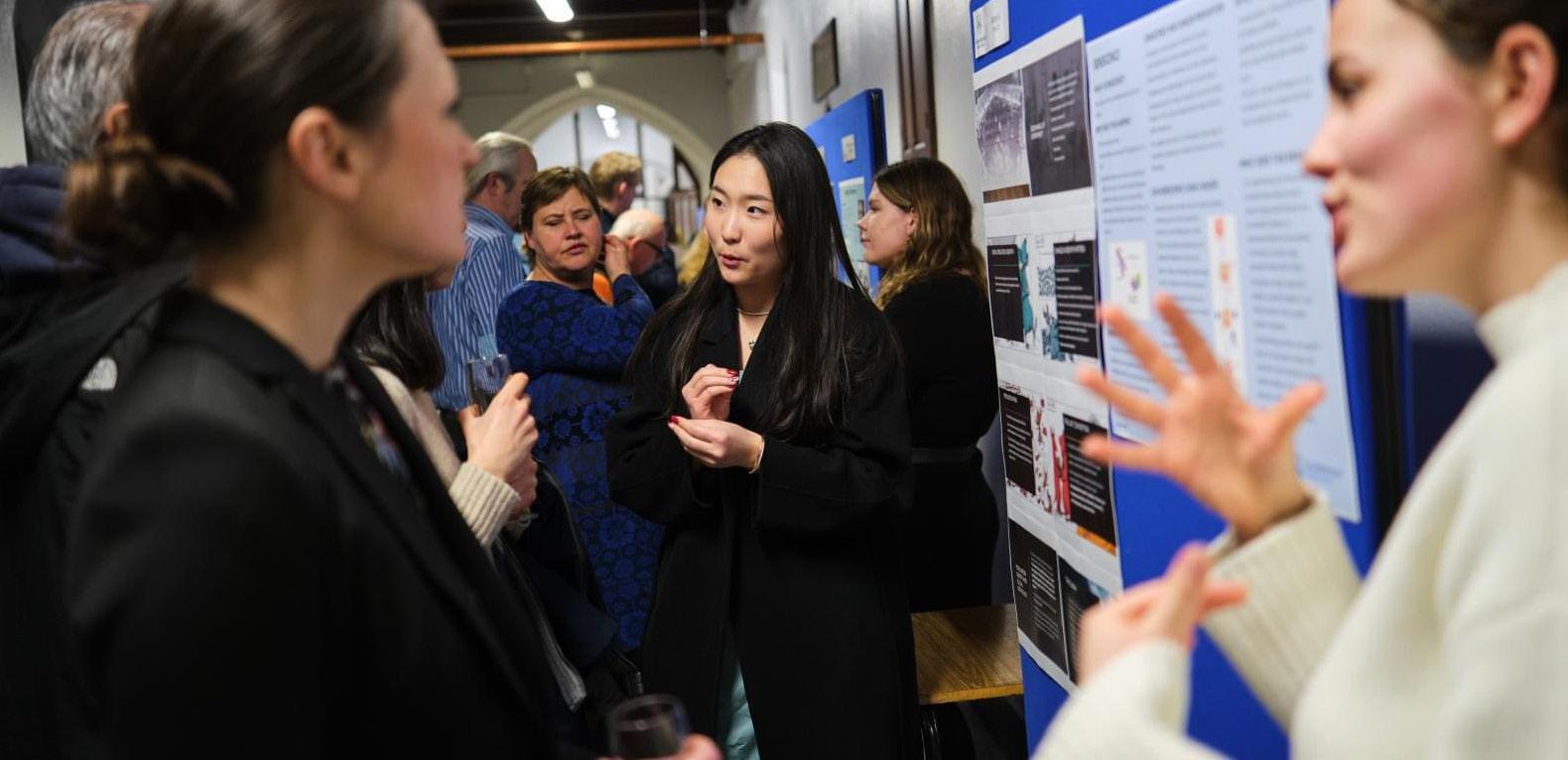
A full-time SENCo, plus two full-time and one part-time assistants (one with dyslexia screening qualification), work across a number of classrooms in quiet corridor with open door policy. Quick to spot issues and resolve: ‘My daughter is quite bright, so we didn’t clock her struggling. School jumped on it, taking her back to basics, building confidence and regularly assessing informally to ensure she didn’t waver.’ Another mum related that her dyslexic son struggled at his previous school, ‘missing playtimes, sport and lunch to finish work – he felt he was being punished. Amherst basically told him, “You are fantastic, we want to help you with the things you find difficult and make them easier.” They check on him quietly without drawing attention and his confidence has soared.’ Regular parent liaison (phone, email, visits).
Currently 14 per cent on SEN register, with additional six per cent receiving support in class. Early morning, lunch and after-school options (some invitational) to coach, assist homework or boost confidence. ‘There’s absolutely no stigma to getting extra support, a number have low level needs, so they know they are not alone,’ the SENCo told us. Experience of dyslexia, dyspraxia, dyscalculia, dysgraphia, ADHD and autism. Currently seven EHCPs. External therapists visit at parental arrangement. Exam support provision available. All pupils screened at entry and formally in years 7 and 9. Strong connections with Loughborough College for ongoing options. ‘Loads of work done during transitions to ease process’. Limited disability and lift access.
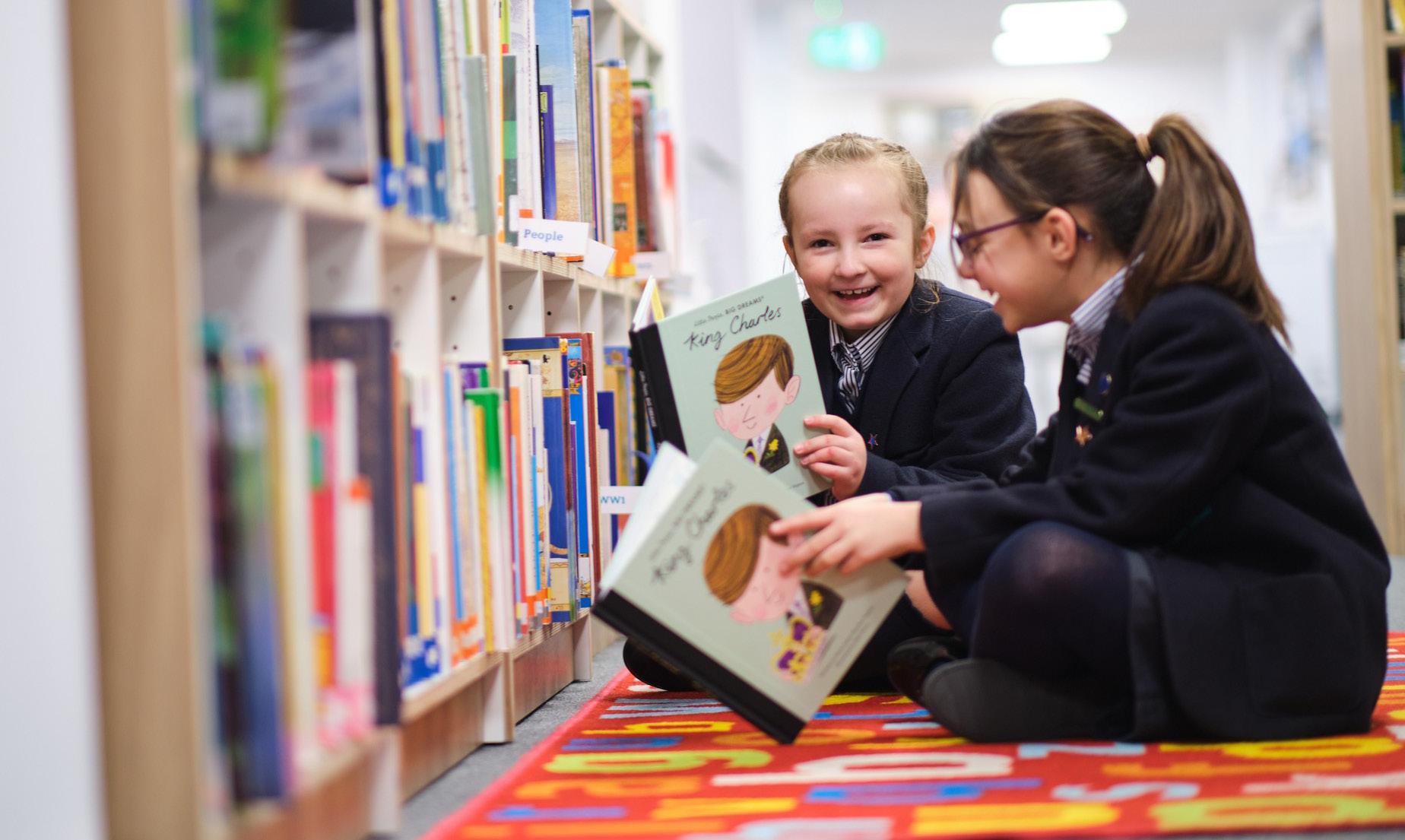

‘Heaps of performance opportunities’
The Foundation has a Steinway only music school, attracting top level musicians and inspiring novices with ‘truly inclusive’ approach. All pupils perform as part of Amherst’s year 7 compulsory choir and everyone ‘has a go’ at violin (year 2) or trombone/trumpet (year 4) – according to one parent, ‘the loudest instrument I’ve ever heard in my life’. The scheme ‘inspired my son to take up the bassoon’, a delighted father recalled. Pupils are excused from rotating lessons for individual tutoring. A cacophony of choirs, ensemble groups (not just classical – we heard one rehearsing a Jackson Five medley) and drop-in workshops for students starting out, as well as those already ‘hooked’. Heaps of performance opportunities. ‘I come to concerts my daughter isn’t even in, they are so fantastic.’ Parents welcome to Friday showcase and ‘soundbites’. Music Tech pathway available for GCSE and as separate A level.

Pupils praise headmaster for immediately heeding their request to add drama to raft of GCSEs. Lower school productions garner particular praise from parents as ‘really outstanding’. One lauded ‘yet another avenue encouraging all abilities to take part’. Seniors were rehearsing for Foundation-wide ‘Spamalot’ when we visited. LAMDA low-key but head planning recruitment drive. Opportunity to join Foundation clubs, including ‘Directors Cut’. Annual Dance show for group and individual performances across Foundation.
Our visit coincided with the gargantuan task of amalgamating GCSE art portfolios – hugely impressive skill set across a multitude of media from a 48 per cent year uptake. Smaller numbers for A level with own studio where creative installations and sculpture ‘push boundaries’, say parents. No DT option. Smattering of artwork adorns cloisters and corridors throughout school, reaching crescendo in jam-packed gallery flanking two ‘creatively haphazard’ (just as should be) art studios.
On Thursday afternoons, curriculum is collapsed for seniors with exhaustive list of enrichment options from academic qualifications to CCF, DofE, volunteering, sports leadership, dance, stem (some shared with Foundation from year 10). The whole of prep visits forest school once every three weeks (on rotation, with packed lunch) for den building, tree climbing, marshmallow toasting and ‘exploring’, one bright eyed pupil disclosed excitedly.
Lengthy lunch hours ‘to switch off, socialise and have fun’, approve parents – everyone signs up for at least one club from eclectic list, eg parkour, mixed netball, rifle club, debating, philosophy, library (‘my son
raves about it having found his inner book worm’), chess or gardening. Pupils flock to the central lawn where (if weather flag permits) throngs of all ages have a good old fashioned (and good humoured) kick about. After-school provision generally restricted to sports clubs or team practice. Usual wraparound care (via Fairfield) and homework clubs.
‘Oodles of trips,’ a parent raved. ‘I don’t know if its normal but there seems to be one each half term, including residentials. In fact, the whole prep goes together – even 6-year-olds, for two nights!’ Academic, international sports tours, Edinburgh Fringe, ‘Autumn Nights Sleepover’ in classroom with film and Domino’s (another pupil voice request granted).

Although Amherst is, as one parent puts it, ‘too small to be much of a threat on the sports field’, they highlight that ‘if you have a sporty child, they can join on equal footing in Foundation teams to compete at a high level’. Approving nod to ‘awesome staff – many of whom competed at the top of their field, plus close relationship with Loughborough University’. Corroborated by pupils, enthusiastically recounting varied fixture list, eg hockey, rugby, football, triathlon, shooting, netball, cricket (donning near identical kit for cohesive Foundation representation). Foundationwide department utilises Parkin Sports Centre (hall, gym, studios), on-site pitches or nearby Quorn fields for early morning, lunchtime or evening practice and matches. Staff encourage ‘fitness for life’ for less sporty types across variety of pursuits. All prep plunge into the grammar pool for swimming lessons, and each year 7 takes part in annual Amherst House Gala. Sports day in houses is highlight.
LUNTA (Loughborough University National Tennis Academy) has a squad of elite tennis players in partnership with the Lawn Tennis Association, educated and boarding at Amherst under a separate provision (includes 2023 Junior Wimbledon Champion Henry Searle).
Elite tennis scheme introduces small number of boarders, with only two additional international boarders.
‘If you have a sporty child, they can join on equal footing in Foundation teams to compete at a high level.’


Amherst joined the Loughborough Schools Foundation in 2015, following more than a century as a girls’ convent school, changing its name in 2018 and welcoming boys the following year to become the only independent co-ed in town (‘more reflective of the real world,’ a pupil reflected).
There’s no doubting it is Catholic (stations of the cross punctuate the cloisters, chapel fits whole school ‘at a squeeze’, religious tableau in each classroom and iconography peppers the school site). ‘It’s a presence you are going to feel,’ say parents, ‘but don’t be put off – it’s about being a good person, tolerant, kind, moral, taking personal responsibility rather than teaching the bible or being religious.’ (One pupil sighed, ‘but we do, do a lot of RE’). ‘Wholly inclusive’ of broad ethnicity and diverse backgrounds. All pupils participate in church service and assemblies.
Approaching school via an inconspicuous side alley, we marvelled at its petite, picture postcard perfection on a pretty plot. It feels like ‘a village school – that’s its appeal’, say parents who are delighted with this nurturing environment, where staff really know each pupil and can tailor their education accordingly, yet with access to all the outstanding Foundation facilities ‘usually only accessible in big schools’.
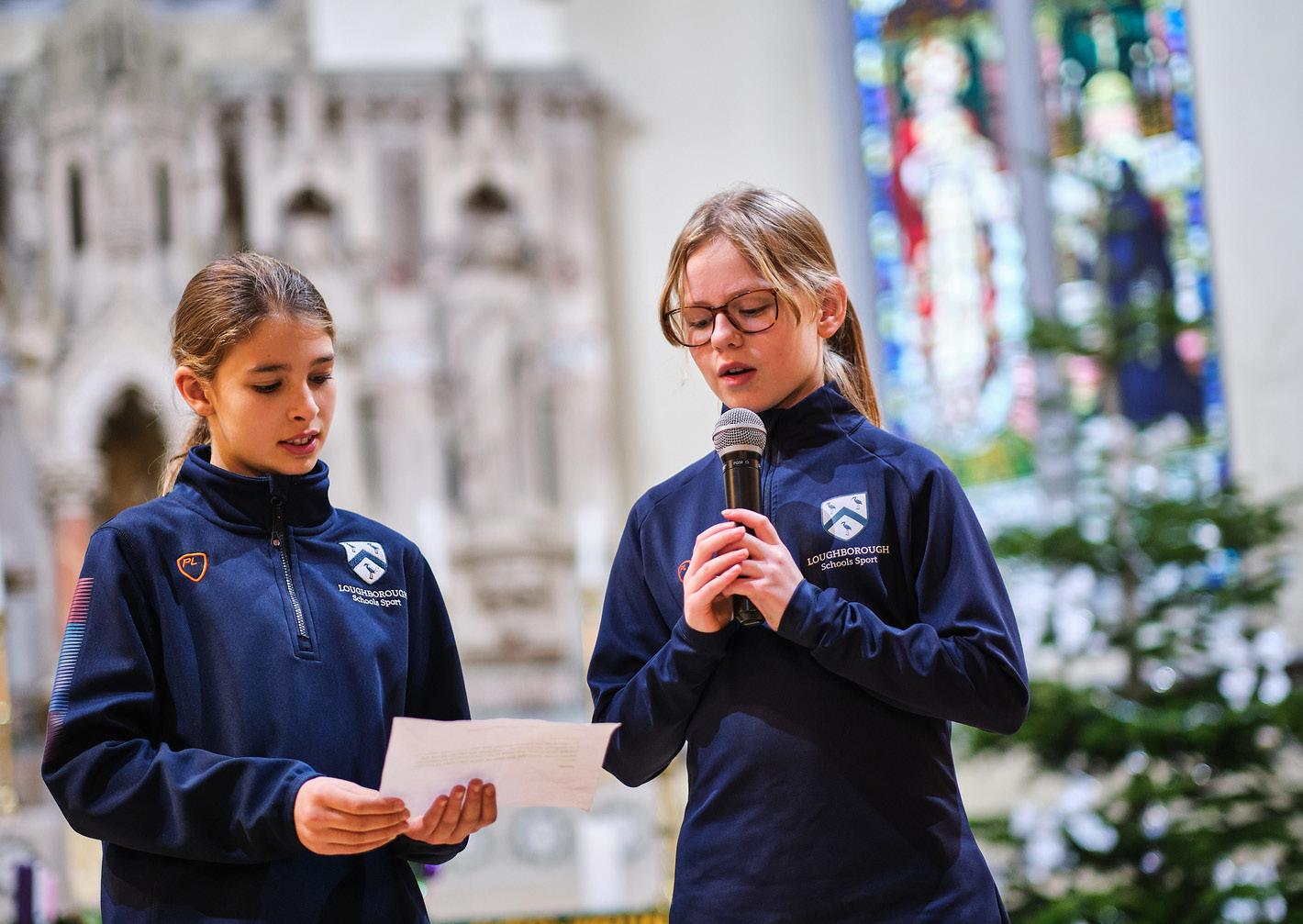
Girls outnumber boys 60/40 per cent but ‘it’s beginning to even up’, staff assure, and it’s a real family affair – countless pupils’ parents, grandparents, aunts, uncles were educated either at Amherst or Foundation schools.
Historically, Fairfield, Grammar and High School perceived as more academic (they’re selective) but all agree that Amherst does not play second fiddle. ‘Our daughter is a capable, sweet girl who could have coped in either school, but we felt the competitive nature of the high school may have squashed her a bit.’ Those offered places at other Foundation schools say Amherst ‘has a different ethos – less pushy, more nurturing’.
‘If you ask my children what they like best about Amherst it would be the food,’ laughed a mum we spoke to at the school gates. ‘It’s like a restaurant – I’m jealous, and the whole place is so child-centred.’ Pupils tell us they love ‘Choosy Tuesdays’ where classes rotate, selecting their favourite dishes – recently full English breakfast and choc-chip cookies. We sampled a delicious roast (resisting the offer of additional potatoes) followed by cornflake tart and custard at sociable round tables.
‘There is an expectation to be kind, include and take care of each other,’ we were told. ‘I know my daughter could go to a teacher or lovely, highly revered prefect and it would be resolved quickly, without a heavy hand.’ Pupils say they generally sort issues themselves. We asked seniors about vaping, to a sharp intake of breath. ‘Oh no, there’s nothing like that here.’ Phones vetoed throughout prep (with some individual exceptions) and for everyone else they are out of sight for duration of school day (sixth form access in common room).
Every base covered pastorally with timetabled activities to check in en masse, eg mental health awareness day, house spirit award or as individuals with tutor time. Counsellor, full-time matron, reflection rooms, library (quiet work or time out) or reaching out via notes, emails or personalised tags popped on teacher’s desk. Each senior year has common room – somewhat trumped by sixth form’s sweeping floor of open areas, study suites and smart kitchen with swanky coffee machine.
Houses (four) split vertically down the whole school and grouped into ‘families’ to encourage bonding. We attended a house meeting which broke off to dash outside for ‘hoop challenge’, replicated by all houses.
‘Foot, foot, head, over’, a teacher boomed for those struggling to coordinate, a sleepy school labrador watching on, unperturbed. House points on offer for all manner of achievements and activities.

‘Every base covered pastorally with timetable activities to check in en masse…’
School council and pupil voice cite countless instances where requests speedily granted, eg those questioning identity, or for comfort, can now wear trousers or shorts in summer, dresses replaced by skirt and shirt for seniors and hair can be worn up or down. School appreciates ‘need for a degree of individuality’. Hustings held for prefects, heads of house voted by staff and pupils.
Personal development programme (years 7-13) a recent addition, with prep following suit imminently. Character building activities, presentation skills, leading assemblies, community outreach (part of larger whole school approach). For upper school, ‘careers, apprenticeship and university talks and advice’.
Pupils are self-aware, kind and friendly – ‘just lovely’, as one parent put it. ‘Great communication within school extends home,’ say parents who love the constant flow of invitations to achievement assemblies, open afternoons, concerts, poem readings etc. ‘A fantastic parental community from a wide spectrum of backgrounds, affluence, ethnicity and professions,’ we were told, ‘very normal – not judgy’. For some, the Foundation offers practicality so families with differing needs can be on same site. ‘Very active PTA’ – fish and chip night, jazz evening etc. WhatsApp groups quick to integrate newbies (‘and post countless messages about lost PE kit’). School transport ‘really comprehensive’ and dropping off at school ‘straightforward’.

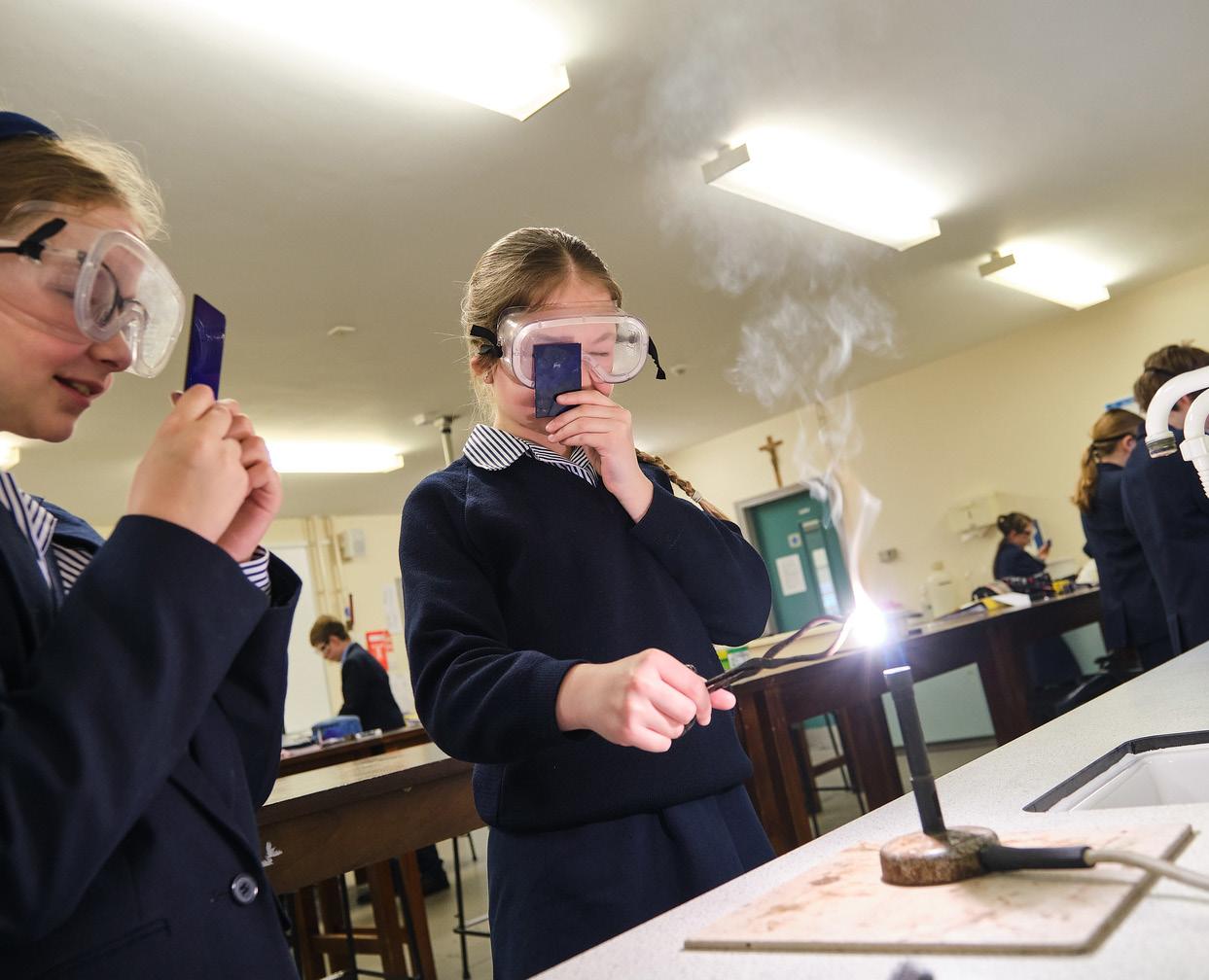
‘Ideal for those happy to be a big fish in this small pond, with access to an ocean of opportunity.’
A number of means-tested bursaries offer up to 100 per cent off school fees. Cross-foundational scholarship programme including academic (single award at year 7, varying remission at years 10 and 12), sports (single awards at year 7 or 8, varying remissions for years 9 and 12) and music (two for provision, no financial assistance).
The last word
Traditionally a little overlooked academically, the Loughborough Foundation merger and access to its exceptional facilities has been a game changer. ‘Whilst bright, confident, sporty go-getters may suit the grammar or high school, don’t overlook Amherst – we get the best deal and none of the pressures of a selective, larger school but with all the benefits,’ said one parent.

